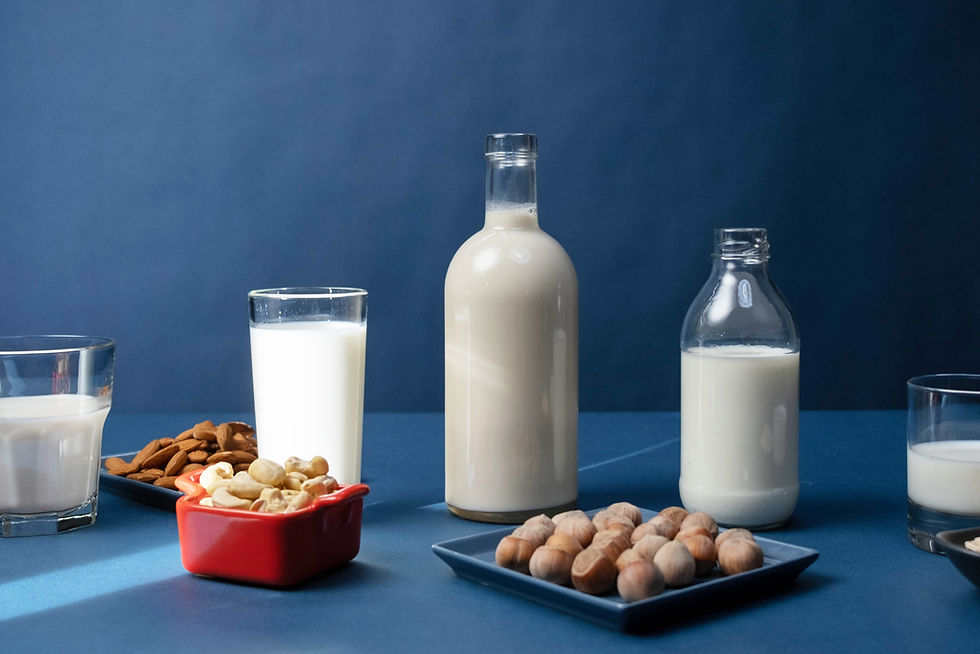Empower Your Bones: Understanding the Role of Calcium in Preventing Osteoporosis Post-Menopause
- doctorerika
- Dec 8, 2023
- 3 min read

Another post about osteoporosis - I know. But I love this topic because the earlier you start thinking about it the earlier you will start doing something about it. Prevention is truly the biggest bang for your buck when it comes to osteoporosis and if I'm talking prevention I have to mention how calcium can help.
Bone loss happens at a rate of 1-2% a year and amplifies during the menopause transition accounting for 10-12% bone loss!
Does Osteoporosis Really Matter ?
Yes. If you have osteoporosis and fall and break your hip, you have a 20% mortality rate in that first year afterward, 20% will require long-term nursing home care, and 60% do NOT fully regain pre-fracture independence. This is a huge impact on your quality of life!
For the sake of healthy aging and living your best life until your last day I want to do more posts about osteoporosis in detail. Let's talk specifically about calcium today, which I mentioned it in my last post but I wanted to go more in-depth.
How Much Calcium Do You Need for Osteoporosis Prevention?
In your daily intake, OVERALL, including any multivitamins you may be taking as well as your diet, you should be hitting about 1200mg. Daily calcium and vitamin D reduced hip fracture by 30%!
How Do You Know if You're Getting Enough Calcium?
The best way is to track for a couple of days or a week to get an idea across different diet-days to see what you're getting on average. This calcium calculator here: https://osteoporosis.ca/calcium-calculator/ is an easy-to-use drop down menu that you use to see what you get in a particular day, or you could use something like MyFitnessPal or other free diet tracker that also breaks down micronutrients like calcium. Most people end up getting less than 600mg which would really benefit from being topped up with a supplement.
Starting or including dairy consumption at 50 years old has moderate grade evidence for impacting bone health, if you can tolerate it.
Types of Calcium: Diet & Supplements
A dairy-free diet over 45 year old may be doing more harm than good when it comes to osteoporosis and this disease causing death. Starting or including dairy consumption have moderate grade evidence for impacting bone health. Dairy is a complex food containing more than just calcium - it's a source of protein and other minerals that will impact bone health. One study added 1.5 servings of calcium to its elderly subjects and within 2 years they saw 33% reduction in risk of fractures of any type and a 2.1% increase in spinal bone mineral density. Adding in the dairy brought up their calcium intake to 1142g and their protein intake to 69g. Other studies are also positive in the impact dairy has on reduction of bone mineral density loss - and preventing bone loss is preventing osteoporosis. If you can tolerate dairy it's beneficial to consume it. Based on research I do recommend dairy as the best source of calcium but there are supplements if you cannot tolerate it. You may not know or your may already be confused about picking a calcium supplement. There's calcium oxide, calcium citrate, calcium malate, and many other calcium salts (or forms of calcium). There is NOT a lot of research comparing this! I have seen a handful of studies, such as this one, that look at calcium carobonate and citrate and they showed no difference. So pick a supplement that isn't too expensive and that you like.
Do you get around 1200mg of calcium daily?
No, and now I am going to increase it!
Yes, I am a rockstar!















































Comments